Common Mistakes That Can Cause Behavioral Issues In Cats
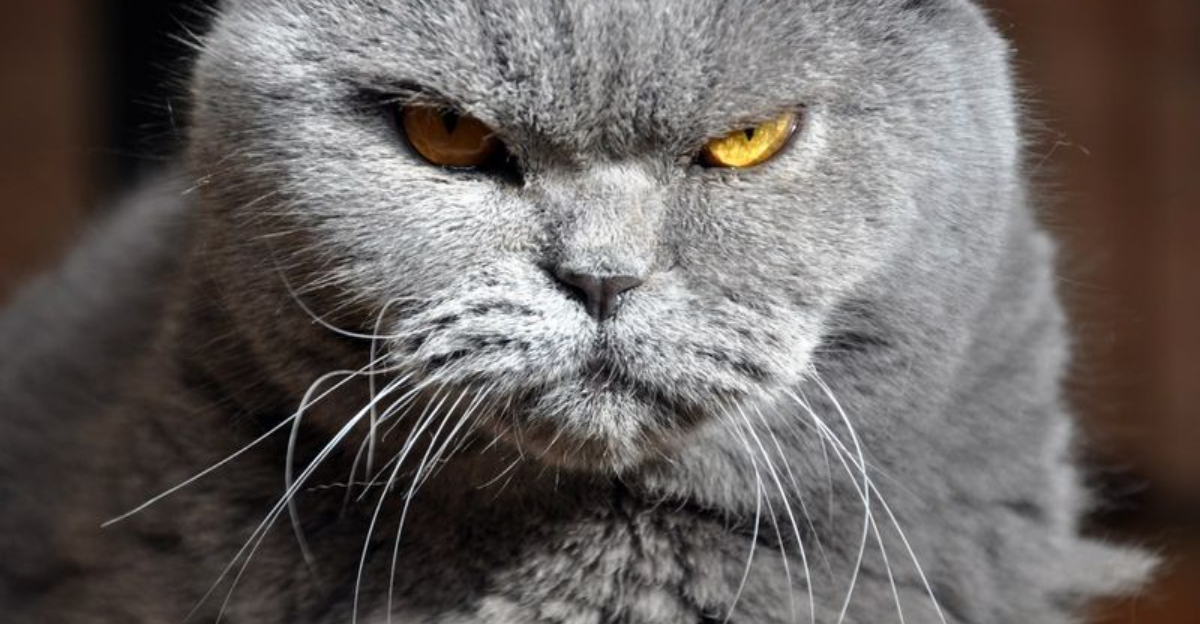
When it comes to our feline friends, behavior can sometimes be a puzzle wrapped in a mystery.
Cats, with their unique personalities, can exhibit a range of behaviors that might leave their human companions scratching their heads in confusion. Understanding what might cause these issues is crucial for a harmonious coexistence.
Here, we’ll explore some common mistakes cat owners might make, leading to behavioral challenges in their beloved pets.
Each point is crafted to enlighten, entertain, and educate, ensuring a better relationship with your whiskered companion.
1. Ignoring Playtime
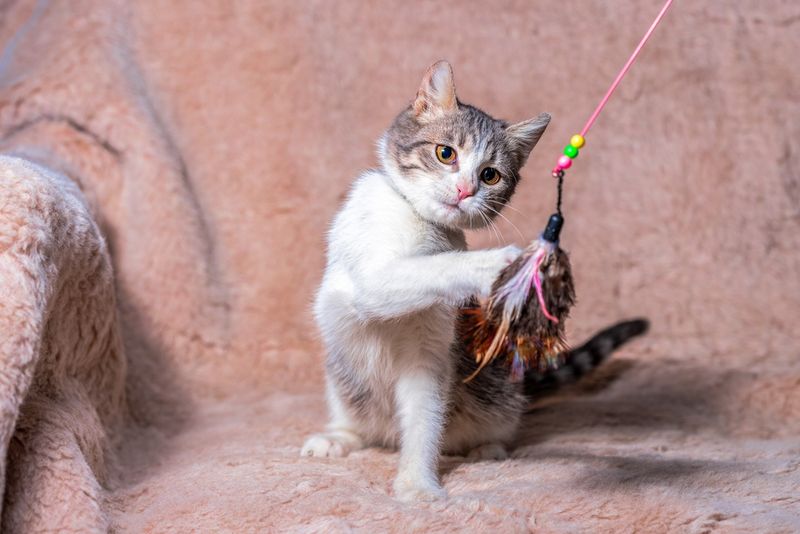
Cats are natural hunters, so when playtime is ignored, they may become restless or aggressive.
Playtime mimics hunting and keeps them mentally and physically stimulated. Without it, they might scratch furniture or become irritable.
Regular play sessions can redirect energy positively. Just 15 minutes with a feather toy can work wonders. Overlooking this essential need can lead to unwanted behaviors like biting or clawing.
Make time for interactive games, and watch your feline friend transform stress into joy. Consistent engagement is key to a content kitty.
2. Inconsistent Feeding Schedule

Consistency is crucial for cats, especially when it comes to their meals.
An erratic feeding schedule can unsettle them, leading to anxiety or overfeeding. Cats thrive on routine, and irregular feeding disrupts their sense of security.
Feed your cat at the same times daily. This simple routine brings comfort and balance, reducing stress-related behaviors. Predictable patterns make for relaxed, happy felines.
3. Neglecting Litter Box Cleanliness

No one likes a dirty bathroom, and cats are no exception. A neglected litter box can be a major source of behavioral issues.
Cats are clean creatures by nature, and a soiled box might push them to eliminate elsewhere and even lead to health problems.
Regular cleaning keeps them content and ensures a hygienic environment. Scoop daily and change litter weekly. A clean box equals a happy, well-adjusted cat.
4. Lack Of Vertical Space
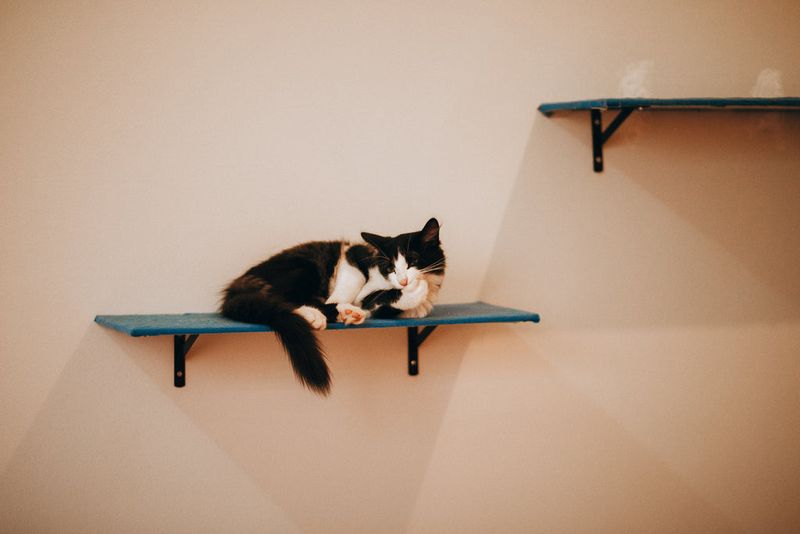
Cats love high places where they can survey their territory. A lack of vertical space might lead to boredom or territorial disputes.
Vertical spaces like shelves or cat trees provide an outlet for this climbing instinct. It’s more than just fun; it’s a way for cats to feel safe and in control.
Without vertical options, cats might become restless or aggressive. Investing in some cat-friendly furniture can transform your home into a feline paradise.
5. Overlooking Socialization

Cats need socialization just like people do. Failing to expose them to different environments and people can lead to fear or aggression.
Early socialization helps cats adapt and reduces anxiety. Start slowly, introducing new experiences gently. Without socialization, cats might become reclusive or skittish.
Regular interaction with humans and other animals builds confidence and happiness. It’s about creating a balanced and enriching life for your feline friend.
6. Using Harsh Discipline
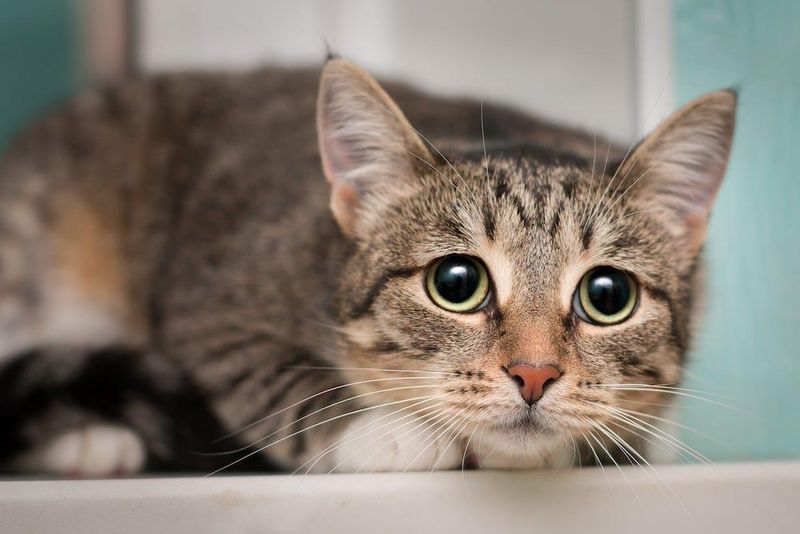
Cats respond poorly to harsh discipline. Yelling or physical punishment only breeds fear and confusion.
Positive reinforcement works wonders. Reward good behavior instead of punishing the bad. Consistency and kindness are the keys.
Harsh methods can lead to anxiety or aggression. Instead, understand their needs and communicate gently. Build trust, and your cat will respond positively. Patience and love foster a harmonious relationship.
7. Ignoring Health Issues
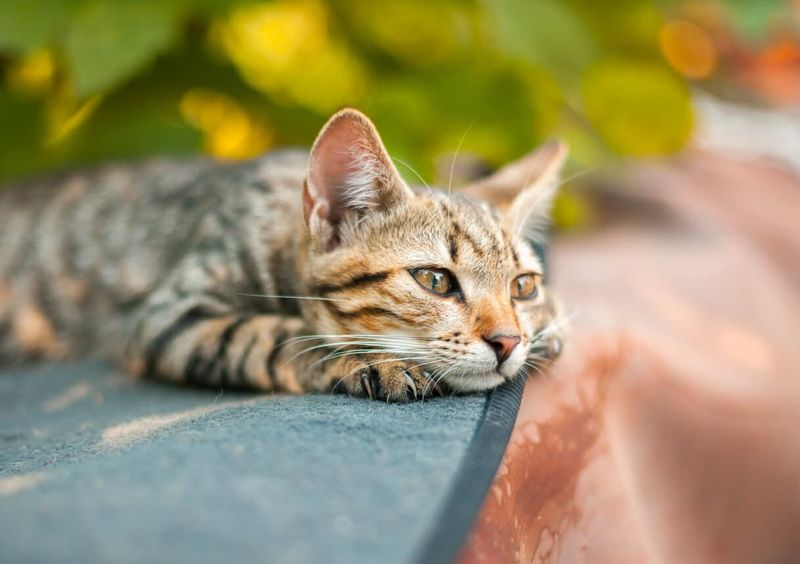
Cats are masters at hiding their ailments. Ignoring subtle signs like a dull coat or lethargy can lead to behavioral changes.
Regular vet check-ups and keen observation are essential. Health issues can manifest as irritability or withdrawal.
Cats rely on us to notice when something’s wrong. Ignoring these signs might lead to serious health problems and behavioral quirks.
Stay vigilant and proactive in your cat’s care. Their well-being is a top priority.
8. Not Providing Scratching Posts
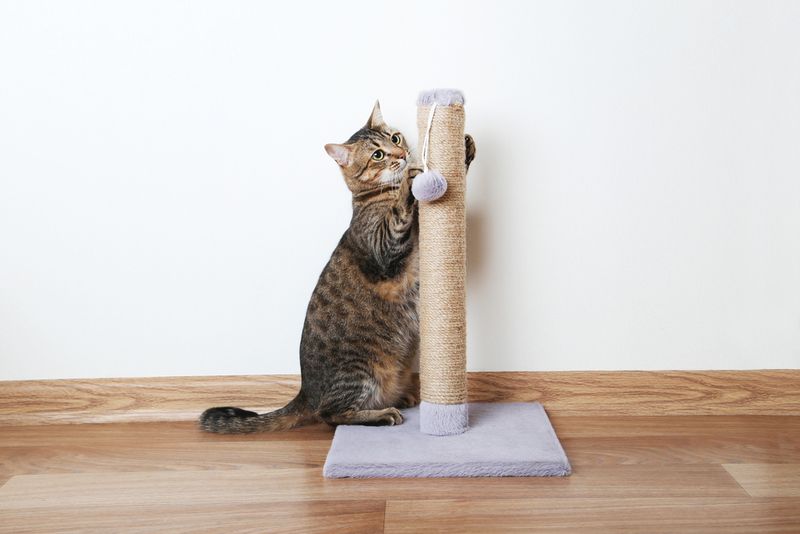
Scratching is a natural behavior for cats. Without a proper outlet, they might turn to furniture or carpets.
Scratching helps them stretch and mark territory. Deny them this, and your sofa might pay the price.
Invest in a variety of posts to suit your cat’s preferences. Encourage them with catnip or toys. It’s about directing their instincts appropriately. A well-placed post can save your furniture and satisfy your cat’s needs.
9. Failing To Respect Personal Space
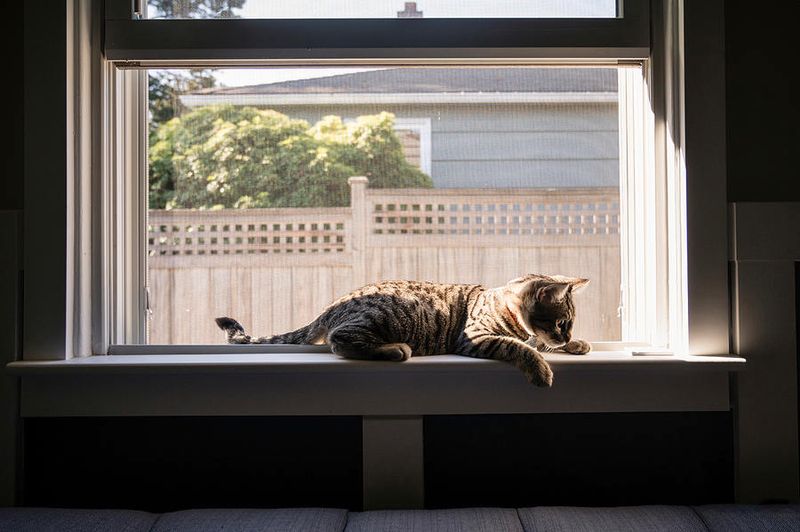
Cats cherish their alone time. Over-crowding or constant handling can lead to stress or aggression.
Respect their cues and offer spaces where they can retreat undisturbed. Watch for signs of overstimulation and respond accordingly.
Failing to provide personal space can lead to behavioral issues. Honor their need for privacy, and they’ll be more affectionate when they’re ready for interaction. Balance is the secret to a happy feline.
10. Overfeeding Treats
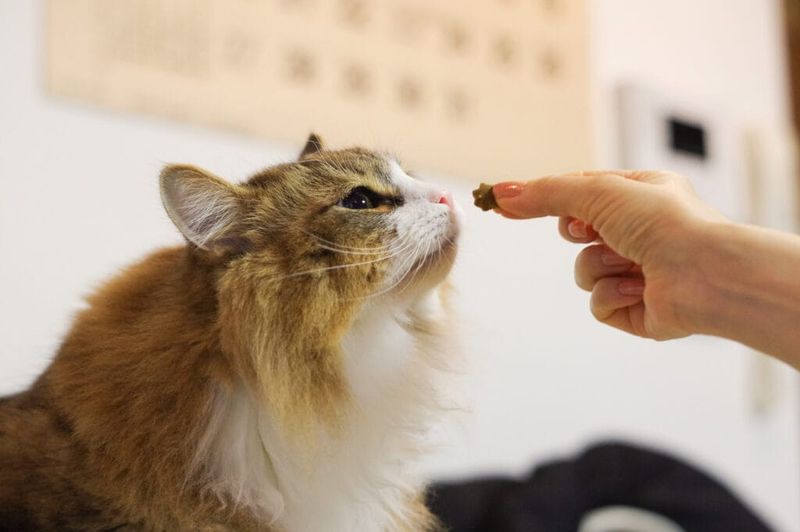
Treats are a delightful way to bond with cats, but overfeeding can lead to obesity and health issues. Excessive treats disrupt their diet and can cause laziness or even diabetes. Moderation is key.
Use treats sparingly, as rewards for good behavior. Balance them with a nutritious diet. A healthy routine ensures longevity and happiness. Treats are a pleasure, but they must be offered wisely.
11. Sudden Changes In Environment
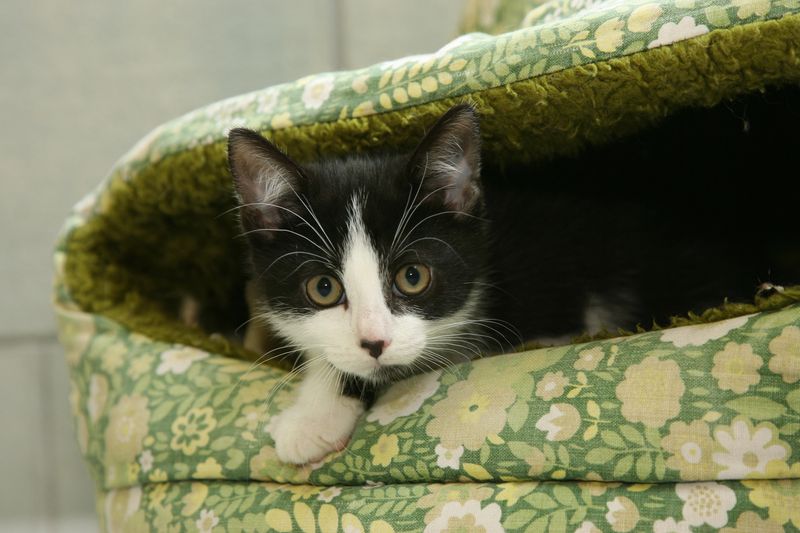
Cats thrive on routine, so sudden environmental changes can unsettle them. Moving or rearranging furniture can cause anxiety or territorial behavior. Gradual transitions help them adjust smoothly.
Introduce changes slowly and offer familiar comforts. This approach minimizes stress and keeps your cat feeling secure.
Stability and patience are vital during transitions. Your cat will thank you with purrs and affection.
12. Lack Of Mental Stimulation
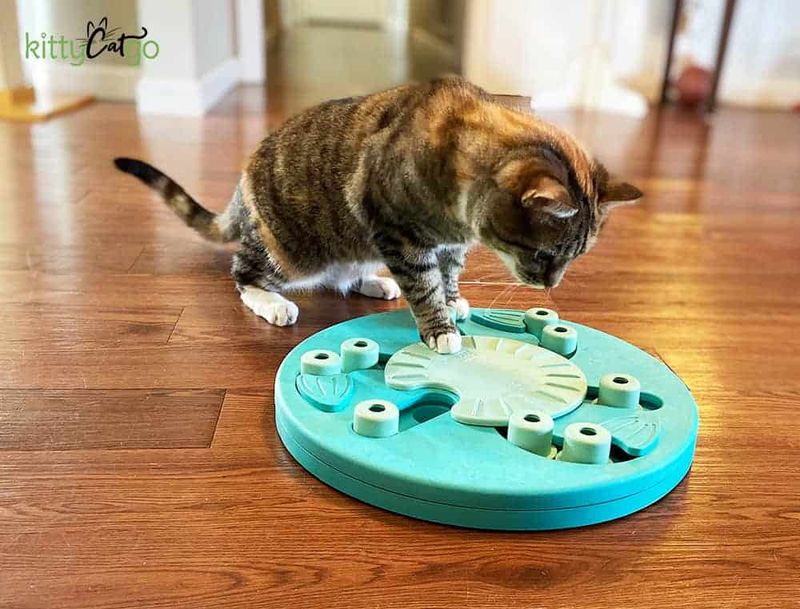
Mental stimulation is as vital as physical exercise. Without it, cats may become bored or destructive. Engage their minds with toys or training sessions. Mental challenges prevent restlessness and promote well-being.
A stimulated cat is a happy cat. Fill their world with interactive games to nurture their intelligence. It’s about keeping their minds as active as their bodies.
13. Allowing Access To Toxic Plants
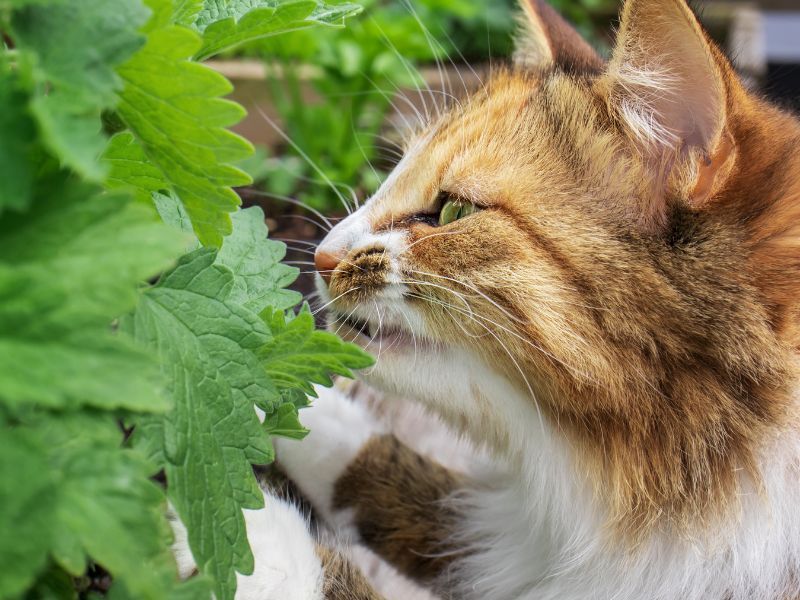
Cats are naturally curious, which can lead them to dangerous plants. Some plants can cause serious health issues if ingested. Keep harmful foliage out of reach and opt for cat-safe options.
Awareness and prevention are crucial. Provide safe, edible plants to satisfy their curiosity. Protect your furry friend from hidden household hazards. Their safety is in your hands.
14. Underestimating Dental Care
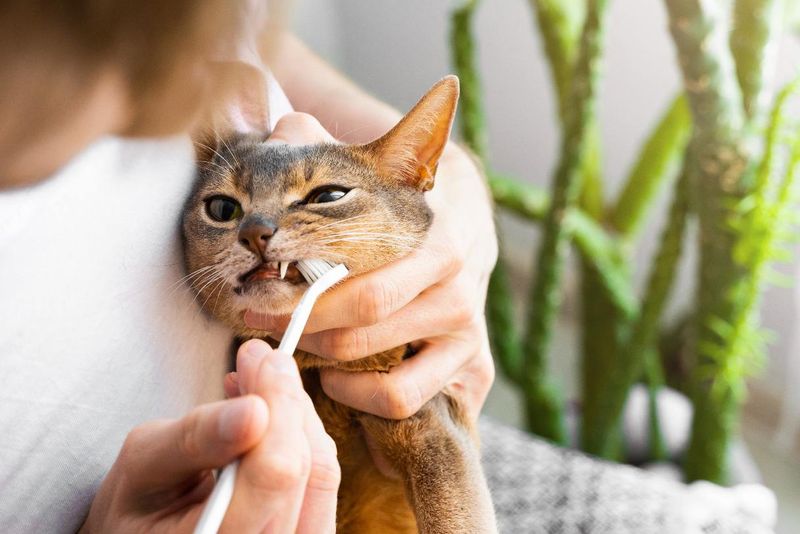
Dental health is often overlooked, yet it’s vital for overall well-being. Neglected teeth can lead to pain or behavioral changes. Regular brushing prevents plaque and ensures fresh breath.
Start gradually, making dental care a positive experience. Your cat’s health and happiness are closely linked to oral hygiene. It’s never too late to begin this essential routine.
15. Not Recognizing Individual Personality

Every cat is an individual with distinct traits. Failing to acknowledge this can lead to misunderstandings.
Recognize and respect their differences. Celebrate what makes them special, rather than expecting them to conform to stereotypes.
Understanding their unique quirks fosters a deeper bond. Embrace their individuality for a more fulfilling relationship. After all, variety is the spice of life, even in the feline world!






